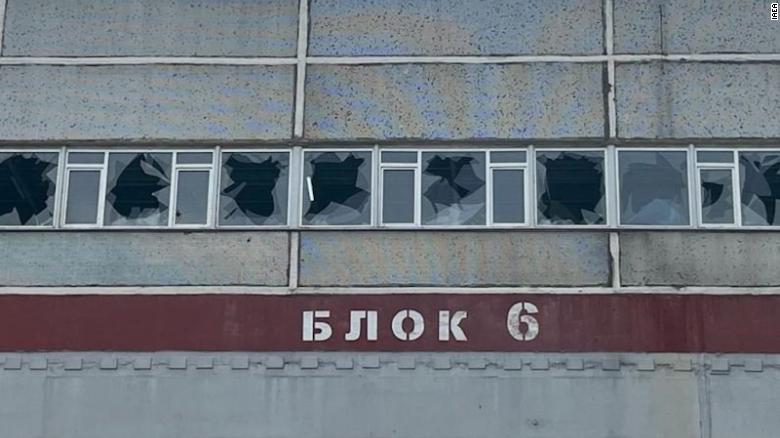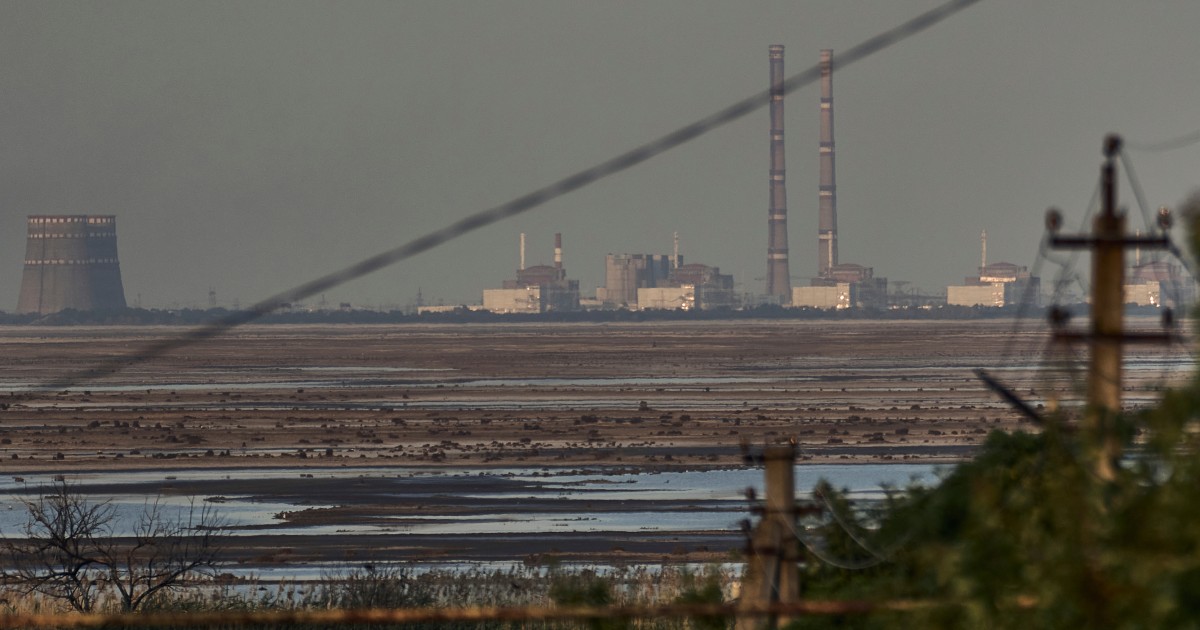The moment of a new explosion near the Zaporizhia nuclear plant 1:44
(CNN) --
The United Nations nuclear watchdog has called for the "immediate establishment of a nuclear security protection zone" around the Russian-occupied Zaporizhia nuclear power plant (ZNPP) in Ukraine, saying in a report published this Tuesday that he remained "gravely concerned" about the situation.
The International Atomic Energy Agency (IAEA) wrote in its report that "interim measures are urgently needed to prevent a nuclear accident caused by physical damage caused by military means."
"This can be achieved through the immediate establishment of a nuclear safety protection zone," the agency continues in the report, adding that it was willing to start consultations for "the urgent establishment of such a nuclear safety protection zone in the ZNPP".
The long-awaited report comes days after IAEA Director General Rafael Grossi led an expert mission to Zaporizhia, the largest nuclear complex of its kind in Europe, in what was the first independent review of the state of the facility since Russia took it at the beginning of the war.
They warn that the level of nuclear risk in Zaporizhia is "giant"
The plant and the surrounding area, including the nearby city of Enerhodar, have endured persistent shelling that has raised fears of a possible nuclear accident due to the interruption of power supply to the plant.
Each side accuses the other of acts of nuclear terrorism.
advertising
Grossi has left the area, but two members of the 14-person team have remained as part of the agency's plan to establish a continued presence at the nuclear plant that could help avert the possibility of a dangerous nuclear accident.
Damage caused by the bombing on the overpass of Unit 6.
During their stay, the team saw first-hand the shelling damage to the facility and "noted with concern that the shelling could have affected security-related structures, systems, and components, and could have caused significant security impacts." , loss of life and injury to personnel," the report says.
The team noted damage "in different locations caused by reported events, some of which was near the reactor buildings," he wrote.
This included damage to the roofs of several buildings, to the special building that houses the new nuclear fuel and solid radioactive waste storage facility, and "the container where the radiation monitoring system is located, in the vicinity of the dry spent fuel storage facility.
How are relations between Russia and North Korea and why might Moscow be looking for weapons in Pyongyang?
The IAEA team also witnessed shelling during its visit and called on both sides to cease hostilities in the area, it wrote.
In one of the incidents, the team had to evacuate to the ground floor of the nuclear plant's administrative building.
"Although the ongoing bombings have not yet triggered a nuclear emergency, they continue to represent an ongoing threat to nuclear safety, with potential impact on critical safety functions that may have radiological consequences of major safety significance," the report concludes. .
In recent weeks, Russia has accused Ukraine of firing on the plant, while Kyiv alleges that Moscow is using it as a fortress to protect its forces and heavy weapons from Ukrainian forces, which have allegedly been ordered not to return fire to the sprawling complex.
CNN has not been able to verify the claims of either government.
The IAEA team noted "the presence of Russian military personnel, vehicles and equipment in various places" at the plant, adding that there are "military vehicles parked under the overpass connecting the reactor units."
The IAEA team looks at the damage caused by the shelling on the roof of a building in Zaporizhia.
The long-awaited report comes days after IAEA Director General Rafael Grossi led an expert mission to Zaporizhia.
The plant's staff have been working under inordinate pressure, and Grossi said "it is essential that the Ukrainian staff operating the plant under Russian occupation are able to carry out their important functions without threats or pressures that undermine not only their own safety, but also that of the facility itself," the report wrote.
"The IAEA recommends that shelling in and around the site be stopped immediately to prevent further damage to the plant and associated facilities, for the safety of operating personnel and to maintain physical integrity to allow safe operation," it added.
The IAEA goes on to say that the situation in Ukraine is "unprecedented" and that a "nuclear accident can have serious repercussions within the country and beyond its borders."
"The current situation is unsustainable and the best measure to ensure the security of Ukraine's nuclear facilities and its population would be for this armed conflict to end now," the report says.
"All seven pillars have been compromised," says the report, referring to the nuclear watchdog's framework, which includes the physical integrity of the facilities, their security systems, the safe supply of energy outside the plant, effective radiation control and reliable communications with the regulator.
Ukrainian authorities said on Monday that Russian bombardment caused the disconnection of its last operating reactor from Ukraine's power grid, and President Volodymyr Zelensky later accused Russia of intentionally deteriorating the situation around the Zaporizhia nuclear power plant.
Is nuclear terrorism at the Zaporizhia plant Russia's new weapon?
"Russia is only interested in keeping the situation as bad as possible for as long as possible," he said in his late-night speech on Monday.
Although the international community has been on high alert over nuclear safety, experts believe a Chernobyl-like disaster is unlikely.
The plant has modern security systems, which means that even if there were to be carelessness in its maintenance, or a major military action caused serious damage, the result would be more comparable to the Fukushima nuclear disaster, which was contained locally, according to Janes and Energoatom.
Nuclear DisasterIAEA








